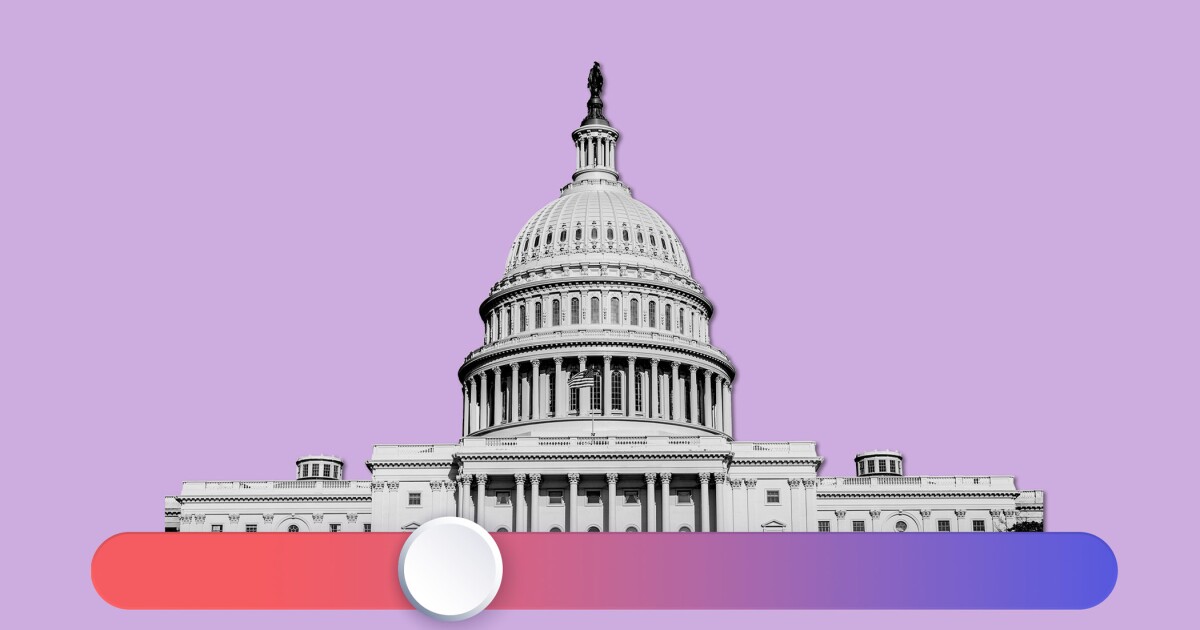

Congressional Republicans and Democrats both say they want to rein in Big Tech, even if for starkly different reasons. That would seem a recipe for legislative compromise.
But amid increasing partisanship weeks away from the Nov. 8 midterm elections, there’s been little movement on tech issues in the 117th Congress. That despite a slew of high-profile committee hearings that frequently put tech industry leaders on the defensive, which has at times had Republicans and Democrats in agreement on how to proceed against Silicon Valley.
Both parties have their gripes with Big Tech.
Democrats are angry that social media and other tech platforms have, in their view, allowed misinformation to proliferate. And that, Democrats argue, aided the rise of former President Donald Trump and helped facilitate the Jan. 6 Capitol riots, aimed at blocking congressional certification of Joe Biden’s 2020 White House win.
Republicans contend the platforms’ content moderators have censored conservative views. Their policy prescriptions include ending a provision in federal law that defines tech companies as private platforms rather than publishers, a designation that shields them from legal liability for the content of their users’ posts. That provision, Section 230 of the Communications Decency Act of 1996, was passed during the early days of widespread internet use and significantly predates many of the current targets of Republican anger — companies like Facebook, Google, and Twitter.
Like so much else on Capitol Hill, it often seems as if the parties are talking past each other. That partisan dynamic was on vivid display during a Sept. 14 Senate Committee on Homeland Security and Governmental Affairs hearing. Former executives from Facebook and Twitter were on hand to testify and answer lawmaker questions about possible online threats to homeland security, as were current TikTok and YouTube employees.
Committee Chairman Gary Peters (D-MI) opened with talk of online content that causes “harm to our society and stokes real-world violence,” including Jan. 6. Peters also referenced social media’s role in organizing the 2017 “Unite the Right” rally in Charlottesville, Virginia, in which a participant killed counterprotester Heather Heyer with his car.
Peters took aim at the way tech companies “design their products in the first place that boosts content and whether they build those products with safety in mind.” He expressed concern about a lack of transparency on how platforms balance making a profit against online safety.
But Sen. Ron Johnson (R-WI) soon went in a different direction. Johnson expressed concerns about the political leanings of the social media companies’ employees and the removal of COVID-19-related user content.
“I think hundreds of thousands of people lost their lives because you did not allow a second opinion to be published on your platforms,” Johnson told the tech industry committee witnesses.
Johnson and fellow Republican senators further emphasized their concerns about possible influence and harm from foreign governments, particularly regarding TikTok and its connection with the Chinese Communist Party.
These varying criticisms of Big Tech make legislative compromise difficult.
“The problem is we’re fundamentally talking about regulating protected speech, and both parties have fundamentally different goals to that end,” the Taxpayers Protection Alliance’s Patrick Hedger told the Washington Examiner. “While we all want to combat mis- and disinformation, most political speech is incredibly subjective.”
Occasionally, both parties’ views overlap, making for common Big Tech congressional targets. That was the case at a Sept. 13 Senate Judiciary Committee hearing featuring former Twitter security chief-turned-whistleblower Peiter “Mudge” Zatko. He testified that agents of the Indian, Chinese, and Saudi governments had infiltrated the microblogging site and possibly compromised user data.
Another bipartisan tech moment came in mid-September when Sen. Lindsey Graham (R-SC) announced plans to introduce a bill with Sen. Elizabeth Warren (D-MA) and fellow Republican Sen. Josh Hawley (MO) that would create a new federal regulatory agency to police tech companies.
Yet with time running out this Congress, and with a post-election lame-duck session unlikely to tackle contentious tech issues, legislation, bipartisan or otherwise, will likely have to wait until next year at the soonest — not that it will be easier in the 118th Congress. House and Senate majorities are both up for grabs on Nov. 8, to varying degrees, and the prospect of split government makes enactment of Big Tech legislation even more remote.






